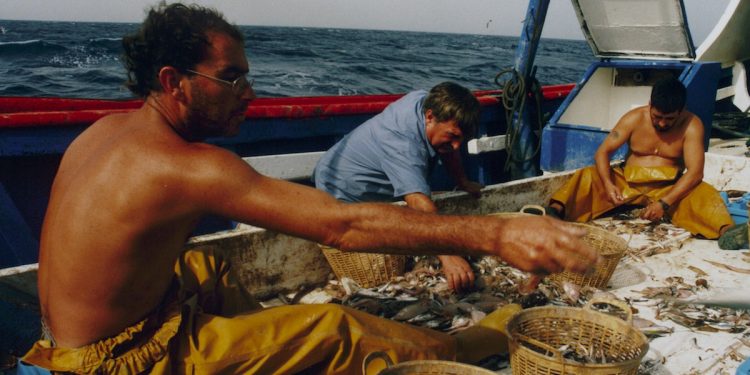The effects of the Covid-19 pandemic are being felt by the fisheries and aquaculture sectors around the world – and in the Mediterranean and Black Sea small-scale fisheries have been badly hit.
A study carried out by the General Fisheries Commission for the Mediterranean has found that there have been reductions of up to 80% in the number of fishing vessels able to operate – with fewer than 10% of small-scale and coastal fishing boats working.
The report finds that the figures vary from region to region, with anything between 40 and 100% of larger vessels able to continue fishing.
‘Social distancing restrictions were reported to be the hardest to comply with, especially in fisheries involving small vessels,’ the GFCM report states.
‘For capture fisheries, the immediate response was a general decrease in production, greater than 75% in most of the countries. A notable exception was Turkey, where production continued at pre-crisis levels thanks to a constant demand, encouraged by decreasing prices and dedicated consumer campaigns. Some signs of improvement have been evident in April with some fisheries adapting (such as with changes in target species and in marketing strategies in line with changes in the demand) and small-scale fisheries potentially better adjusting to market demand.’
Effects on aquaculture operations have also been variable, with finfish farms, which generally require daily distribution of feed, environmental monitoring and pathology control, remaining active but with a reduction in staff, whereas farms rearing other species requiring less regular maintenance decreased their activity. In Tunisia, aquaculture farms and facilities continued operating, while in some regions of Italy the number of active farms varied between 50 and 95%.
‘The GFCM will continue to follow the evolution of this crisis to take steps to support the recovery of the fisheries and aquaculture sectors, with a special focus on the impacts on the livelihoods of fishers and aquaculture farmers,’ GFCM states.
‘A mix of immediate action and longer-term strategic initiatives is needed to secure and reconcile the economic, social and environmental sustainability of fisheries and aquaculture sectors in the Mediterranean and the Black Sea. The post-2020 strategy of the GFCM will heed this call.’









